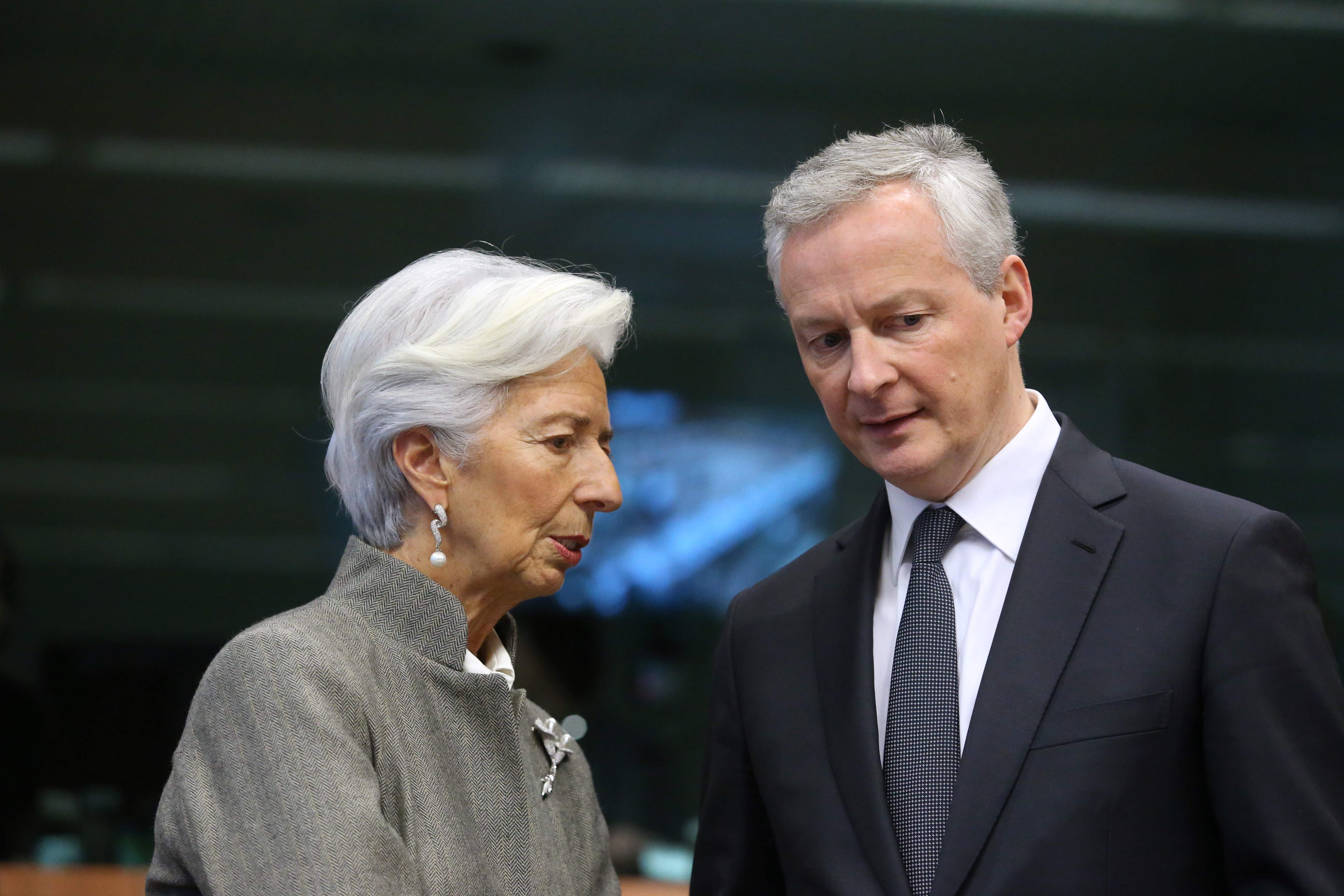They cannot be called passivity. Faced with the coronavirus, which has now infected more than 90,000 people and has killed 3,117 worldwide, the message from the economic authorities is clear and proactive: all necessary measures will be taken to protect growth from the coming slowdown. And quick.
Read also: How the European Central Bank influences your life
Several central banks quickly announced that they were closely monitoring developments and stood ready to act to support the economy as fears escalated. This is a change from recent months, where the mood was more to keep rates at their level, or even a gradual rise, especially in the United States.
In their joint declaration with the G7 finance ministers on Tuesday, eagerly awaited by the markets, the central bankers pledge to "continue to fulfill their mandates" , that is to say "to support price stability and economic growth while maintaining the resilience of the financial system . ” Finance ministers, for their part, "are ready to act, including taking budgetary measures if appropriate, to (...) support the economy".
Read also: Fed rate cuts: understand everything about this planetary decision
Some central banks did not wait to take action. On the night of Monday to Tuesday, the Australian central bank (the Reserve Bank of Australia) decided to lower its key rate by 0.25 basis points to 0.5%, the lowest rate ever reached by this indicator. The institution is concerned about the Chinese cold snap and believes that "it was appropriate to further loosen monetary policy in order to further support employment and economic activity ". The central bank is ready to continue and reinforce this policy of lowering the cost of credit if necessary, since it is the fourth time in a year that its rate has been lowered.
Australia is indeed highly dependent on the activity of the Middle Empire. About 1.35 million Chinese tourists go there each year, according to the World Tourism Organization (UNWTO), and China alone accounts for over 29% of Australian exports, much of which is made up of raw materials. Under these conditions, any weakening in Asia weighs heavily on the land of Kangaroos.
Read also: How dependent are we on the Chinese economy?
The same day, the Malaysian central bank followed suit in Australia, lowering its key rate to 2.5%, its lowest rate since 2010. Dependent on tourism and closely linked to the Chinese economy, Malaysia will feel the full impact of the coronavirus, warns the central bank, stressing "significant risks ". About 2.2 million Chinese tourists visited Malaysia in 2017, one of their main destinations. The country is also one of the largest recipients of Chinese investment in the past five years. The fall in the rate must therefore offset the Asian decline and " provide a more accommodating monetary environment ".
At the beginning of March, the central bank of the United Arab Emirates also decided to take action, asking the country's financial institutions to implement measures aimed at " limiting the effects of the coronavirus " on the economy, including the rescheduling of loan contracts or a reduction in bank charges. At the same time, the CBUAE will again examine its 2020 growth forecasts, stressing that the epidemic will limit the outlook this year.
European central banks stand ready to act
In Europe, the authorities also want to be reactive. ECB President Christine Lagarde said on Monday that the epidemic posed " risks to the economic outlook and the functioning of financial markets ". The European Central Bank says it is " ready to take appropriate and targeted measures, if necessary, and proportionate to the underlying risks ". The next morning, the French Minister for the Economy, Bruno Le Maire, indicated that he had a " very positive " telephone interview with Christine Lagarde: " we want a strong and coordinated response at the level of the euro zone and the G7 ", did he declare. The subject will therefore be discussed on March 12, at the next meeting of the institution's board of governors.
“ What we expect is simple: a commitment from all European players to show solidarity and ambition in the face of the coronavirus crisis. We must not neglect measures that could be budgetary to support growth at a time when it is slowing down, ”explained Bruno Le Maire. The minister justified this choice by recalling that " the room for maneuver of monetary policy is more reduced ", European key rates have already been remarkably low since the 2008 crisis. The head of Bercy therefore called on Brussels to show " flexibility ”vis-à-vis the budgetary rules in an exceptional moment.
Read also: Coronavirus puts "global economy at risk," warns OECD
For the moment, however, no specific decision has been announced by the ECB. Nationally, the Governor of the Banque de France, François Villeroy de Galhau, called for calm, explaining that the coronavirus was hampering activity without causing, for the moment, a global crisis. Already " very accommodating ", monetary policy can be changed if necessary, but " we are not there yet, " he said.
Across the Channel, the Bank of England has promised that it will take " all necessary steps to support the economy and the financial system of the United Kingdom ". Its experts have studied " a series of scenarios " forecasting the evolution of the macroeconomic context, and " will act as appropriate ". On Tuesday, its governor Mark Carney welcomed " very frank " exchanges between the institutions and argued that the response to the crisis should mix " fiscal measures and central bank initiatives ".
In the United States, Trump resumes his showdown with the Fed
The European position, vigilant, joins that of its peers from other continents. In Asia, the Governor of the Central Bank of Japan, Haruhiko Kuroda, said on Monday that his teams would " closely monitor future developments " and provide " sufficient liquidity and [would] ensure the stability of the financial markets through market operations." appropriate ”. Same observation in the United States: Friday, the head of the Federal Reserve, Jerome Powell, recalled that the " fundamental elements of the American economy " remained solid. However, " we will use our tools and do the right thing to support the economy, " added his short statement, using a simple future that opens the door to a future rate cut.
Key interest rate trends in Europe and the United States Le Figaro
The pressure on the Fed is enormous and has increased further in recent hours. Donald Trump indeed saw in the epidemic a golden opportunity to demand again a cut in key rates in the United States. It would stimulate the economy and strengthen its balance sheet, he hopes, a few months before the presidential elections next November. Citing the Australian example, the occupant of the Oval Office regretted that the Federal Reserve " charges higher rates than many others, when we should pay less ." A disadvantageous situation for American companies, he denounces, adding that Jerome Powell " was wrong from the first day ".











